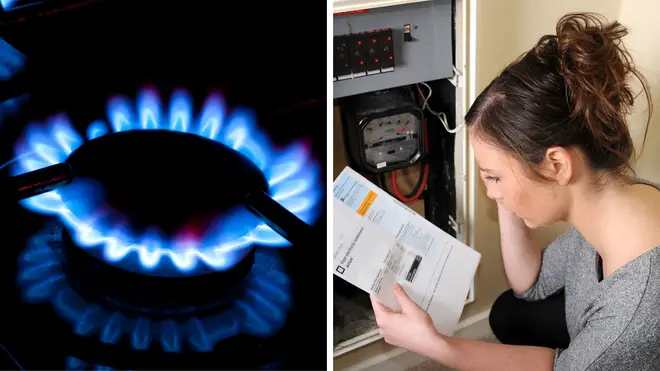
Clive Bull 1am - 4am
3 February 2022, 23:44 | Updated: 4 February 2022, 06:49

The Government has announced support for households following an energy price cap rise - here is everything you need to know.
Chancellor Rishi Sunak unveiled a support package on Thursday, in a bid to help those facing eye-watering hikes in their energy bills.
It comes after Ofgem reviewed its price cap on energy bills, upping it by £693 per year to £1,971.
Several factors are behind the sharp rise in costs.
Gas prices on global markets are around four times higher than they were a year ago, with Ofgem's price cap having protected customers until now.
The cap is, however, reviewed every six months, and will be changed in April to take into account the price surge.
Demand is also higher due to the pandemic, with businesses trying to make up for lost time despite a drop in gas production.
Read more: 'We have to live within our means': Sunak defends 'puny' Govt support amid energy crisis
Read more: Millions will be pushed into poverty because of energy crisis, says campaigner

Chancellor Rishi Sunak explains the measures to ease the energy crisis
Homes
Energy bills will continue to rise, even if you live in a home without gas heating or cooking facilities.
Bills will be capped at the updated rate between April and October, meaning another £58 on bills every month for the typical household.
However, it is predicted that there could be a further increase on the cap to more than £2,300 per year for the typical household in October.
Businesses
Different companies are expected to be affected in different ways.
Energy suppliers have been under extreme pressure in recent months due to the rise in prices on the global market, with several already going out of business as a result.
Other businesses are also being hit, with many manufacturers relying on gas to run heavy machinery.
Ultimately, many of the rises in gas prices for businesses are being passed on to customers, with inflation hitting 5.4 per cent in the year to December.

Rishi Sunak: People are understand we have to live within our means
The Chancellor outlined three ways in which the Government will help families deal with the rising energy costs.
They are:
He told MPs in the Commons: "The price cap has meant that the impact of soaring gas prices has so far fallen predominantly on energy companies, so much so that some suppliers who could not afford to meet those extra costs have gone out of business as a result.
"It is not sustainable to keep holding the price of energy artificially low... But what we can do is take the sting out of a significant price shock for millions of families by making sure the increase in prices is smaller initially and spread over a longer period."

Rishi Sunak believes introducing the Health and Social Care Levy is 'the right thing to do'
Whether things show signs of improvement over coming years depends on several issues.
This winter has proved milder than it could have been, so less gas has been needed to heat homes.
However, some experts still believe it could be years before gas prices drop below their high levels, with Goldman Sachs suggesting gas prices could remain at twice their usual level until 2025.
Tensions with the east could also impact prices, as potential sanctions could push up gas prices further.